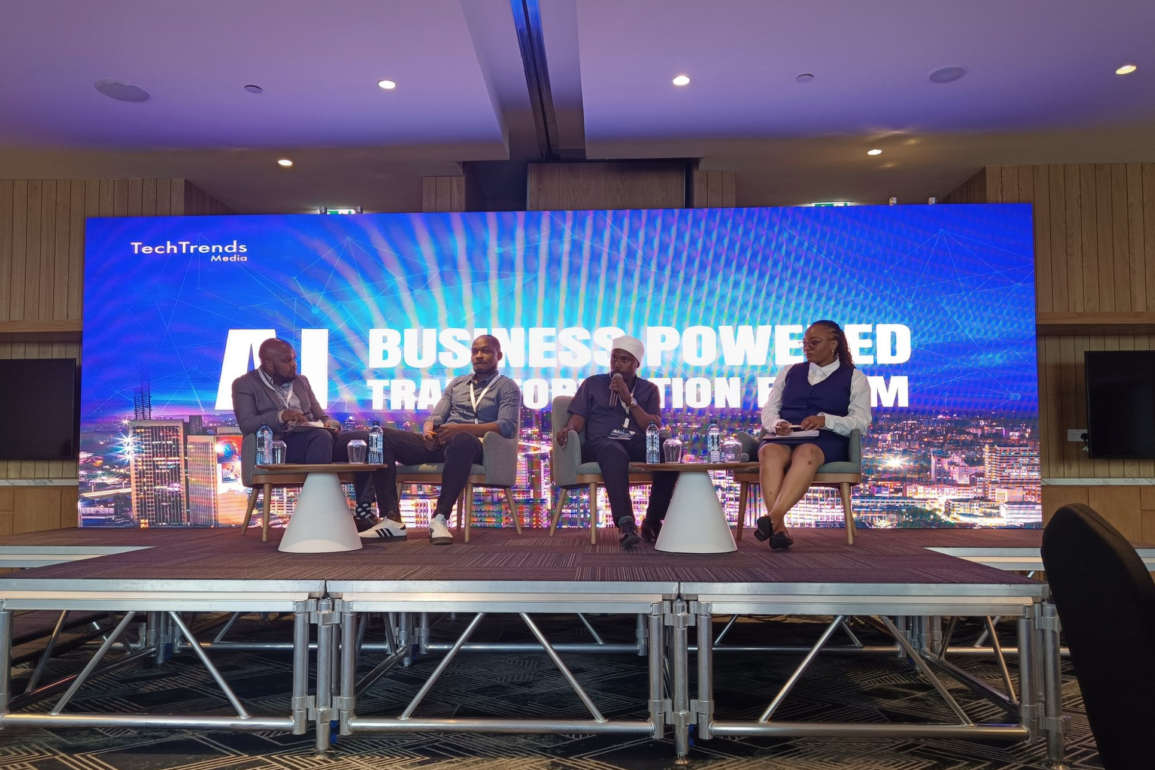At a breakfast gathering in Nairobi on Thursday, senior executives, AI researchers, and policymakers wrestled with one of Africa’s defining questions: how can the continent harness artificial intelligence not as a distant promise, but as a tool of present-day transformation?
The TechTrends AI Breakfast Forum, hosted at Hyatt Place, brought together figures from companies such as Samsung Electronics East Africa, AI Kenya, iTel Mobile, and CyberPro under the theme “AI-Powered Transformation: Unlocking Africa’s Next Growth Frontier.”
Discussions ranged from workforce productivity and cybersecurity to digital inclusion and responsible deployment — topics that have become urgent as Africa seeks to secure its place in the global AI economy.
Annepeace Alwala, Vice President of Global Service Delivery at Sama, delivered the keynote with a focus on inclusive growth. “Africa is at a pivotal point where technology and innovation can accelerate development like never before,” she said. “AI offers us a unique opportunity to leapfrog barriers, improve productivity, and create new jobs for our people.”
For Alwala, AI’s promise is inseparable from the continent’s role in supplying the data that trains global systems. “Our teams from Kibera are proof that African talent powers global innovation training the data behind autonomous vehicles. AI cannot breathe without people; data is its oxygen. If the data is flawed, the model won’t work.”
Her remarks echo a broader shift. According to the African Union, the continent’s AI ecosystem has expanded dramatically, with AI-related startups attracting over $650 million in funding between 2019 and 2024, a small but fast-growing fraction of the global total.
Meanwhile, research by the World Economic Forum suggests AI could add as much as $1.2 trillion to Africa’s GDP by 2030, provided countries invest in infrastructure, talent pipelines, and governance.
Industry leaders emphasized AI’s pragmatism over hype. “AI is not about some futuristic tools but about addressing the daily business issues in the present day such as improving workforce productivity and enhancing cybersecurity,” said Ryan Mule, Product Manager at Samsung Electronics East Africa. “If a $100 phone can help someone learn, work or connect, that is innovation. Tech should open doors for everyone.”
That view was reinforced during TechTrends Live, a series of interactive podcast panels featuring Alfred Ongere, CEO of AI Kenya; Benta Kamau of CyberPro; Joseph Henry Okal of Glidex; and Ryan Zhang of iTel Mobile. The discussions centered on how African enterprises are adopting AI, what frameworks can ensure its ethical use, and how to broaden meaningful participation in the digital economy.
“Digital inclusion requires more than just devices,” Zhang stressed. “It demands affordable data, localized solutions, and stronger digital literacy.”
Despite uneven connectivity — average mobile internet costs in sub-Saharan Africa remain the highest in the world — African governments are beginning to sketch national AI strategies. Rwanda, Egypt, and Mauritius have already drafted policies, while Kenya is finalizing its own framework. But implementation lags, and without deliberate investment, experts warn that AI risks reinforcing existing inequalities.
“There’s no perfect AI law anywhere. So don’t wait for regulation. If your company uses AI, write your own policy — what tools you allow, how you protect data and what you won’t permit,” said Benta Kamau, Head of Cybersecurity Law & Ai Governance at Cyberpro.
The forum also included an Awards & Recognition Ceremony highlighting ecosystem contributors, followed by a networking lunch aimed at catalyzing partnerships. Nixon Kanali, Founder of TechTrends Media and host of The TechTrends Podcast, framed the event as a bridge between experimentation and execution. “Our mission with the AI Breakfast Forum is to demystify AI and show how it can practically transform businesses, SMEs, and communities in Kenya and across Africa,” he said.
For all the optimism, the challenge remains stark. Africa accounts for just 1.3 percent of global AI publications and less than 1 percent of large language model training data, according to Oxford Insights. Yet as Thursday’s forum underscored, the continent is not merely waiting for technology to arrive from abroad; it is actively debating how to make AI both usable and equitable.




